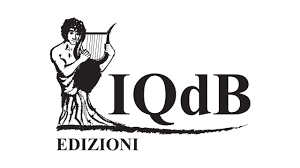Fate Fogli di Poesia, Poeti!
Connettivo per la promozione della Poesia in azione ideale con il manifesto di Antonio Leonardo Verri
Info
Per aderire al connettivo scrivere a fatefoglidipoesia.poeti2022@gmail.com indicando mail, eventuali siti, o pagine social
lunedì 11 agosto 2025
sabato 9 agosto 2025
venerdì 8 agosto 2025
martedì 5 agosto 2025
lunedì 4 agosto 2025
sabato 2 agosto 2025
venerdì 1 agosto 2025
martedì 29 luglio 2025
lunedì 28 luglio 2025
sabato 26 luglio 2025
venerdì 25 luglio 2025
giovedì 24 luglio 2025
mercoledì 23 luglio 2025
martedì 22 luglio 2025
lunedì 21 luglio 2025
domenica 20 luglio 2025
sabato 19 luglio 2025
venerdì 18 luglio 2025
giovedì 17 luglio 2025
mercoledì 16 luglio 2025
martedì 15 luglio 2025
lunedì 14 luglio 2025
domenica 13 luglio 2025
sabato 12 luglio 2025
venerdì 11 luglio 2025
giovedì 10 luglio 2025
mercoledì 9 luglio 2025
martedì 8 luglio 2025
lunedì 7 luglio 2025
domenica 6 luglio 2025
sabato 5 luglio 2025
venerdì 4 luglio 2025
giovedì 3 luglio 2025
Iscriviti a:
Commenti (Atom)
Fate Fogli di Poesia, Poeti! Links
- Associazione Culturale Macarìa
- Associazione Sentiero dei Sogni (progetto ideato da Pietro Berra)
- Caffè Letterario - Lecce
- Compagnia Teatrale Scena Muta di Ivan Raganato
- Comune di Caprarica di Lecce
- Donato Di Poce
- Fondo Verri di Lecce
- Gisella Blanco
- I Quaderni del Bardo Edizioni di Stefano Donno
- il non SENSOVERSO di Francesco Pasca
- La Biennale di Poesia di Alessandria
- La Casa della Poesia di Como
- NavigliPoetrySlam di Annelisa Addolorato
- Ottavio Rossani
- puntoacapo Editrice
- rivista Utsanga diretta da Francesco Aprile e Cristiano Caggiula
- SAMUELE EDITORE
- ScriverePoesia Edizioni
- Vittorino Curci
Cosa fa il collettivo/connettivo Fate Fogli di Poesia, Poeti!
Il Fondo Verri di Lecce, I Quaderni del Bardo Edizioni di Stefano Donno, La Casa della Poesia di Como, costituiscono il collettivo/ connettivo per la ricerca, promozione e diffusione della poesia nazionale e internazionale FATE FOGLI DI POESIA, POETI! In azione ideale con il manifesto di Antonio Leonardo Verri
Il connettivo per la ricerca, promozione e diffusione della poesia nazionale e internazionale FATE FOGLI DI POESIA, POETI! è aperto all'inclusione su espresso desiderio e comunicazione dei richiedenti, di fondazioni, associazioni, aziende, enti pubblici e privati, attori sociali di ogni ordine e grado)
I componenti del Connettivo Fate Fogli di Poesia, Poeti!
Casa della Poesia di Como, Fondo Verri di Lecce, I Quaderni del Bardo Edizioni di Stefano Donno, Comune di Caprarica di Lecce, Associazione Sentiero dei Sogni, Compagnia Teatrale Scena Muta di Ivan Raganato, Associazione Culturale Macarìa, Gisella Blanco, ScriverePoesia Edizioni, Samuele Editore, Caffè Letterario - Lecce, puntoacapo Editrice, Ottavio Rossani, la rivista Utsanga diretta da Francesco Aprile e Cristiano Caggiula, Donato Di Poce, La Biennale di Poesia di Alessandria, NavigliPoetrySlam di Annelisa Addolorato, Vittorino Curci, Francesco Pasca, Marcello Buttazzo, Giuseppe Zilli, Alessio Arena, Alessandra Paradisi

